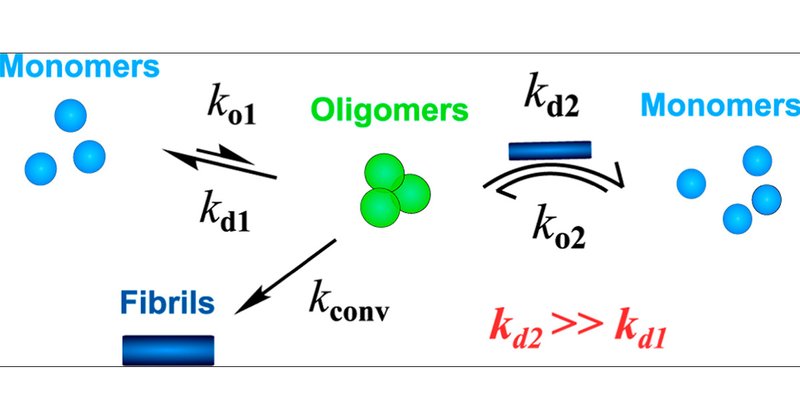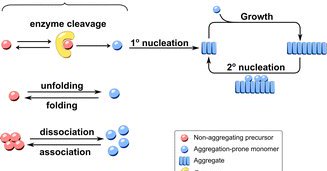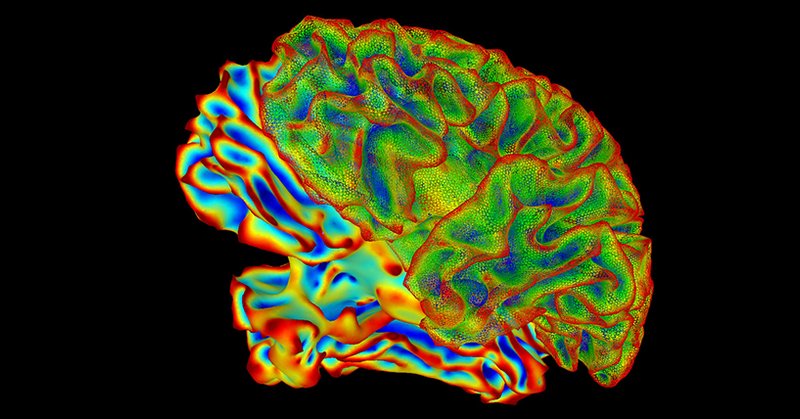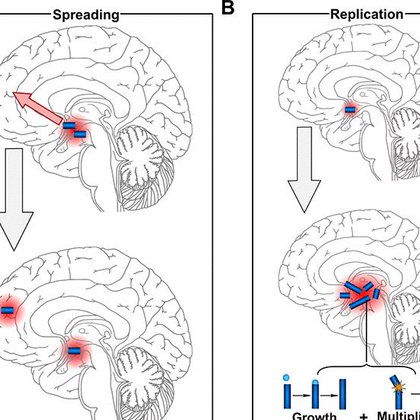
Georg Meisl
@georg_meisl
Followers
161
Following
31
Media
0
Statuses
21
Biophysicist at the Department of Chemistry, University of Cambridge, using maths to answer fundamental questions in Alzheimer's and related disorders.
Joined October 2021
RT @ScienceofPD: New paper from @Catherine_k_xu @KnowlesLabCamb & collaborators reports secondary nucleation as not only the key source of….
0
8
0
Congratulations to @AlexanderD54714 , @theabetaguy , @eaandrzejewska, Lei Ortigosa-Pascual, Sara Linse and @KnowlesLabCamb.
0
0
2
In many systems, toxic protein oligomers are produced by nucleation on existing fibrils, but how are they removed? We show that fibrils also effectively catalyse oligomer dissociation, with interesting implications for drug discovery in @ACSChemNeurosci
pubs.acs.org
Oligomeric assemblies consisting of only a few protein subunits are key species in the cytotoxicity of neurodegenerative disorders, such as Alzheimer’s and Parkinson’s diseases. Their lifetime in...
1
4
8
Thank you also to @AlexanderD54714, Matthijs Oosterhuis, Ronald Melki, Sara Linse and in particular.@CeciliaEmanuel8 for spending her spare time to help us get the data to get this work over the line.
0
0
2
Congratulations to @wei34502823 on his first first-author paper, was a pleasure working on this together in @KnowlesLabCamb! The work extends our models of protein aggregation to systems where new monomer is constantly being produced, check it out here
pubs.rsc.org
Protein aggregation is a key process in the development of many neurodegenerative disorders, including dementias such as Alzheimer's disease. Significant progress has been made in understanding the...
1
0
12
Check out our new PNAS paper Using a method originally developed in astronomy, we determine the half lives of all proteins in a cells, in a single set of experiments. Congrats to Alex & everyone involved on a really cool paper! @KnowlesLabCamb @PNASNews.
pubmed.ncbi.nlm.nih.gov
Full understanding of proteostasis and energy utilization in cells will require knowledge of the fraction of cell proteins being degraded with different half-lives and their rates of synthesis. We...
1
2
11
Thank you to @HabchiJohnny, @suzfowler and the rest of the team at WaveBreak Therapeutics, as well as @Alisdair_s , @MichaelsLabETH and @KnowlesLabCamb for a great collaboration!.
0
1
0
Our new @ChemicalScience paper on the mechanisms of lipid-protein co-aggregation is out! Very excited to share this work I led at WaveBreak Therapeutics.
1
1
8
RT @nchembio: A new paper reports the de novo design of amyloidogenic peptide traps. Read it here .
0
7
0
How can we understand neurodegeneration and its potential cures in the context of the biophysics of protein aggregation? I provide a new perspective on this question by framing systems as a battle of aggregation and removal in @BiophysRev
0
0
7
RT @StructMacro: Georg Meisl, from University of Cambridge, will give a talk on rate-limiting processes in protein self-assembly from the t….
0
3
0
RT @andreia_rocha_: 📣 Here comes the next talk of our Tau protein series by @georg_meisl!! 👇 Don’t miss it! .Join me and my fellow IDCS org….
0
4
0
Thanks to everyone involved, in particular co first author @Catherine_k_xu, for a great collaboration! @KnowlesLabCamb @KlenermanLab @MichaelsLabUCL @daniel_otzen, Jonathan Taylor, Aviad Levin, Steve Matthews, Sara Linse and Maria Andreasen @ChemCambridge @ScienceAdvances.
0
2
8
Protein aggregates appear in many neurodegenerative diseases, but how universal is their ability to self-replicate and what are the implications for disease? We finally answer this question in our new paper: #dementia.
science.org
All pathological protein aggregates self-replicate in vitro on a disease-relevant time scale.
5
37
146
RT @pintofscience: ✨Tickets for #pint22 are now on sale!✨. 🎟️Book here 👉 📅9th-11th May 2022.📍33 locations across t….
0
80
0
RT @UKDRI: Study suggests new approaches may be needed for treating later stages of Alzheimer’s - tau accumulation driven by local replicat….
0
9
0
RT @Cambridge_Uni: The spread of #AlzheimersDisease has often been described using terms like 'chain reaction'. But a new study from @Chem….
cam.ac.uk
The international team, led by the University of Cambridge, found that instead of starting from a single point in the brain and initiating a chain reaction which leads to the death of brain cells,
0
13
0
Check out our new work, using chemical kinetics to identify the rate-determining process in #AlzheimersDisease, published today in @ScienceAdvances. @KnowlesLabCamb @KlenermanLab.
science.org
Local replication doubles the number of tau aggregate in Alzheimer’s disease only once every 5 years, limiting the overall rate.
1
4
17





